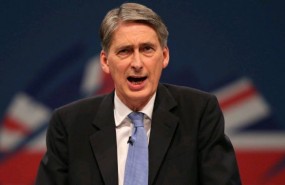Chancellor takes £12bn hit to deficit from student loan changes
A change in the way of accounting for student loans will add more than £12bn to the government’s annual deficit and could wipe out the Chancellor's recent budget windfall.
Under the current method, student loans do not count as government spending.
As a large portion of the £100bn-plus of student debt will never be repaid and will be written off by the government, ONS had been asked by Parliamentary committees whether this means some or all of the money should be treated as government spending rather than government lending.
After consulting with other countries and international bodies such as the IMF and Eurostat, the Office for National Statistics said on Monday that it has decided to split the government’s student loan payments into two parts.
The government lending element will be calculated based on expected future repayments.
The amount that remains and is not expected to be repaid will be treated as government spending. ONS said it will treat this portion as capital spending, as this can be thought of as the government effectively cancelling a portion of the loan at issuance, which is treated as capital spending under international standards.
"This change has no impact on the overall level of government debt," said David Bailey, ONS head of public sector division, in an ONS blog post.
"This is because debt is a cash measure so is unaffected by whether the money being paid out is classified as a loan or spending. However, this change will increase the government’s budget deficit, to ensure it properly reflects the true picture of government spending because student loan debt write-offs that would have taken place in 2040 and beyond will be reflected as government spending now."
However, the new approach will lead to the public deficit increasing by approximately 0.6 percentage points of GDP a year, which equates to around £12bn in the current year, according to estimates from the Office for Budget Responsibility.
The Resolution Foundation thinktank predicted the changes would add £72bn to public borrowing by 2022-23, eliminating most of the £74bn windfall handed to the chancellor by the OBR in October’s budget.
Matt Whittaker, Resolution deputy director, said on Twitter that opting for the 'hybrid' treatment, "doesn't change" the overall government cost, but "will increase the deficit".
